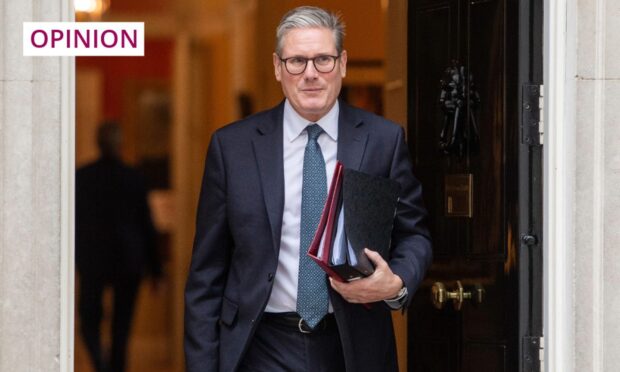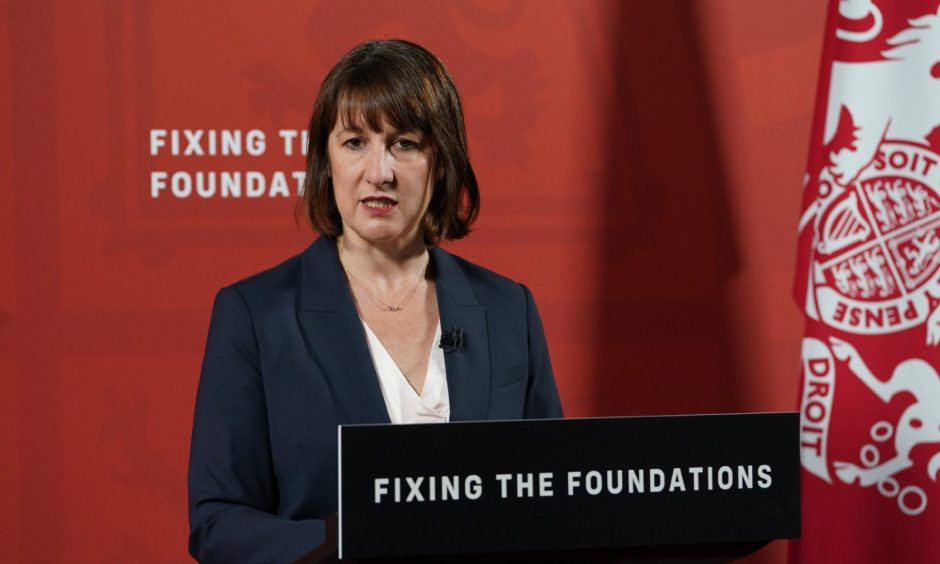Sir Keir Starmer is unlikely to look back at his first 100 days as Prime Minister with any great fondness.
The new Labour government had a shaky beginning — somewhat generously described by the party’s Scottish leader Anas Sarwar as “teething problems”.
Rather than coming into office with a strong set of bold announcements on the “change” they promised, Sir Keir’s top team have more often resembled bankruptcy accountants brought in to save a firm on the brink.
Deeply unpopular changes to the Winter Fuel Payment for pensioners combined with constant gloomy warnings about the inevitability of getting worse has not created an image of a government in control.
In Dundee, the party’s rocky start, particularly in how it handled the Winter Fuel Payment changes, was blamed for a poor showing in two by-elections.
Meanwhile, economists more used to being the ones delivering grim predictions about the public finances have even stepped in to warn the deep depression that’s taken hold of those in power could actually make things worse.
Away from the actual work of governing, Sir Keir and his senior minsters have been caught up in a political rammy over gifts.
Freebies have left voters with a bad taste
Weeks of coverage about freebies accepted by the Prime Minister and others left voters with a bad taste.
It was a trap any skilled politician should have been able to avoid but was worsened by the government repeatedly failing to get a grip of the situation.
The lack of a positive story and an inability to properly deal with questions about accepting hundreds of thousands of pounds of freebies is far more than a teething problem.
But after a shake-up of Sir Keir’s inner circle, and briefings that the message has been heard, senior Labour insiders tell me they are cautiously optimistic the next 100 days and beyond will be smoother.
“It’s not been the best start but it was always going to be a challenge. We’ve come in to a real mess and after 17 years out of power it has taken time to adjust,” one insider said.
While others close to Scottish Labour leader Anas Sarwar concede there have been difficulties and errors, the fundamentals were correct. They point to progress on key pledges such as GB Energy and new rights for workers.
The challenge is now around how the government communicates its message and ensures it has a convincing narrative.
Speaking after the Dundee by-elections though, one source said there had not been enough done to manage the political impact of the Winter Fuel Payment decision.
Another senior Labour source said they thought Chancellor Rachel Reeves had left it too long between the election and her first budget.
‘Budget should have come sooner rather than later’
They said: “Politically I think it would have been better to have had a budget sooner rather than later.
“It has been a long three months when the only economic story that’s been told about our new government is the changes to the Winter Fuel Payment and warnings of things getting worse in the short term.”
As The Courier’s leader column on Saturday pointed out, it would be politically shortsighted for the UK Government to focus on the normal five-year political cycle.
Scotland will return to the ballot box in just 18 months for one of the most consequential Holyrood elections to date.
They will decide if SNP First Minister John Swinney is to have another five years in power or whether to call time on the party’s time at the top.
With the Scottish Conservatives languishing in the polls, it will be Anas Sarwar who is hoping to convince the country to give his Scottish Labour party a chance to serve.
But the Dundee by-election results prove Scots are still far from certain about Scottish Labour.
‘Trust is easily lost and hard earned’
As politics professor Sir John Curtice told The Courier on Wednesday, Scottish Labour’s fortunes will be inextricably linked to the Westminster government.
Alarm bells should be ringing after such a shaky first three months.
With just 18 short months to go until the Scottish elections, they will have little time to waste in convincing Scots to about-turn after 17 years of SNP dominance.
It may yet prove naive to pin all that hope on minor changes to Sir Keir’s team of advisers.
The party may come to realise a more fundamental problem exists.














Conversation